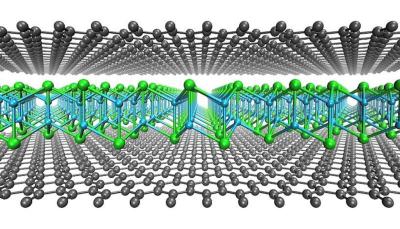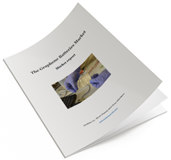The Graphene-Info weekly newsletter
Published: Tue, 01/25/22
The Graphene-Info newsletter (January 25, 2022)
Cannot read this? View it online here
G6 Materials announces testing agreement of GO materials with U.S. Army
G6 Materials has announced that its wholly owned subsidiary, Graphene Laboratories (GLI), has entered into a Testing Services Agreement (the “TSA”) with the U.S. Army Engineer Research & Development Center (“U.S. Army ERDC”) in Vicksburg, Mississippi.
GLI will be assessing the performance characteristics and quality of graphene oxide (“GO”) materials in order to help solve environmental challenges. Development of GO materials with superior adsorptive capabilities for the removal of complex contaminants will take place, with 10 specific tests to be conducted by the U.S. Army ERDC on GLI’s GO materials. The project will run for an expected time frame of one year.
First Graphene secures Innovate UK funding for supercapacitor research
Last month, First Graphene (FGR) announced a milestone in its program to develop high performing supercapacitor materials. Now, the Company announced it has been awarded funding from Innovate UK EDGE to progress development work on its supercapacitor graphene hybrid materials with a Research and Technology Organization (RTO) based in the United Kingdom.
The Innovate EDGE fund supports high-growth small to medium enterprises (SMEs) to scale up and innovate, working alongside the UK’s “RTO and Catapult Network”. The Company will engage with world-leading experts at the Energy Innovation Centre based at Warwick Manufacturing Group (WMG) – part of the Catapult Network.
Graphene-Info updates all its graphene market report
Today we published new versions of all our graphene market reports. Graphene-Info provides comprehensive niche graphene market reports, and our reports cover everything you need to know about these niche markets. The reports are now updated to January 2022.
The Graphene Batteries Market Report:
- The advantages using graphene batteries
- The different ways graphene can be used in batteries
- Various types of graphene materials
- What's on the market today
- Detailed specifications of some graphene-enhanced anode material
- Personal contact details into most graphene developers
The report package provides a good introduction to the graphene battery - present and future. It includes a list of all graphene companies involved with batteries and gives detailed specifications of some graphene-enhanced anode materials and contact details into most graphene developers. Read more here!
Lyten receives National Security Innovation Capital contract to accelerate graphene battery technology
Earlier this month, graphene-enhanced batteries developer Lyten was commissioned by the U.S DIU to demonstrate battery technology for space applications. Now, Lyten has announced that it has received a contract from the U.S. Department of Defense's (DoD) National Security Innovation Capital (NSIC) program to aid in expanding the capacity of its domestic battery prototype manufacturing and production capabilities.
The funding from NSIC will help reduce the time to market for Lyten's LytCell™ lithium-sulfur (Li-S) batteries by increasing the number of cells that can be produced per year at its battery cell pilot production line, currently being built at its headquarters in San Jose, California.
Rice team develops an acoustic processing method to analyze LIG synthesis in real time
Researchers at Rice University have found that sound can be used to analyze the properties of laser-induced graphene (LIG) in real time.
The researchers, two of which are brothers, say that they heard something unusual while making graphene. Ultimately, they determined the sound itself could give them valuable data about the product. The brothers, John Li, a Rice alumnus now studying at Stanford University, and Victor Li, then a high school student in New York and now a freshman at the Massachusetts Institute of Technology, are co-lead authors of a paper that describes the real-time analysis of laser-induced graphene (LIG) production through sound.
Graphene enables the creation of new 2D materials
Researchers at the University of Vienna, in collaboration with the Universities of Tübingen, Antwerp and CY Cergy Paris and working with Danubia NanoTech, have developed a graphene-based method to produce 2D materials. They have already produced a new 2D material made of copper and iodine atoms sandwiched between two graphene sheets.
 A single layer of cuprous iodide encapsulated in between two sheets of graphene (gray atoms). Image from Phys.org, credit: Kimmo Mustonen, Christoph Hofer and Viera Skákalov
A single layer of cuprous iodide encapsulated in between two sheets of graphene (gray atoms). Image from Phys.org, credit: Kimmo Mustonen, Christoph Hofer and Viera Skákalov
Following the 2D copper iodide, the researchers have already expanded the synthesis method to produce other new 2D materials. "The method seems to be truly universal, providing access to dozens of new 2D materials. These are truly exciting times," Kimmo Mustonen, the lead author of the study, said.
First Graphene to develop graphene-enhanced cement in agreement with Fosroc
First Graphene (FGR) has entered into a collaboration agreement with Fosroc International to develop PureGRAPH, graphene-enhanced cement additives or grinding aids. The companies have entered a five-year collaboration agreement to facilitate the exchange of knowledge through research and development work.
Low doses of PureGRAPH-enhanced cement additives used in the final grinding phase of cement production can allow for up to 20% reduced clinker factor cement output while preserving or increasing cement performance.








